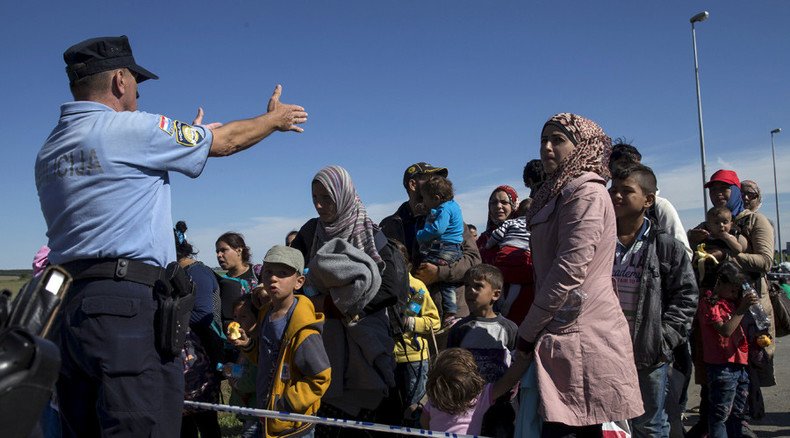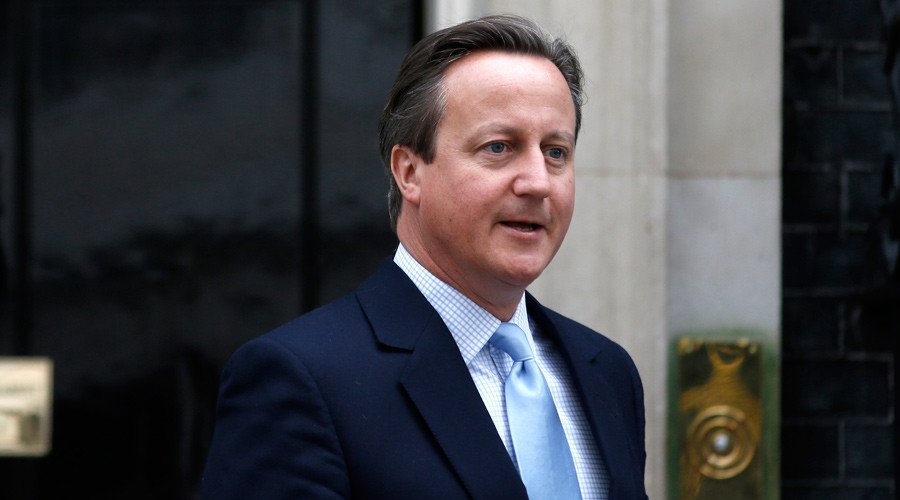'West using Syria as testing ground for new style of sectarian proxy warfare'

We see in many ways a return to the 1930’s style of politics where countries that once proudly proclaimed their commitment to freedom of movement and liberal values are resorting to ‘beggar-my-neighbor’ policies, Dan Glazebrook, political analyst, told RT.
RT: Human Rights Watch reacted with dismay to the summit's outcome, saying that everyone is once again dodging their responsibilities. What do you make of the meeting?
Dan Glazebrook: Yes, I think that sounds about right. In many ways this whole crisis is symptomatic of the kind of much broader crisis that the whole Western world has been plunged into ever since the economic crisis of 2007-2008. We are seeing in many ways a return to the kind of 1930’s style of politics where countries that once proudly and loudly proclaimed their commitment to freedom of movement and liberal values are increasingly resorting into a kind of ‘beggar-my-neighbor’ policies, and outright colonial war in an attempt to divert and export their own economic problems and stave off the growing economic crisis. I think this is one aspect of that and, of course, it is caused by the colonial wars that the West has been waging, mostly proxy wars, particularly in Syria, Libya and Somalia. This is a big cause of the refugee crisis. So, in many ways we are seeing this return to the kind of conditions of the 1930s and this ‘beggar-my-neighbor’ policy is one worrying aspect of that.
Keith Best, former Conservative Party politician in the UK: "Now the EU commission is taking 19 states basically to court, they are taking action against them for not applying the common European asylum system…We are seeing this massive, what we call, ‘nimbyism’ - ‘Not In My Back Yard’ attitude – from European states all prepared to say it is somebody else’s responsibility, not theirs. So, we are seeing a very distorted approach."
RT: At least €1bn will be donated to the UN refugee agency and transit countries hosting migrants. Will throwing cash at the problem solve the crisis?
DG: No. What will solve it could only be an end to the British-French-US policies of destabilization in North Africa and the Middle East, in particular, but actually aimed at the whole global south ultimately. We’ve seen these policies cause havoc in Libya and Syria most recently. And the ironic thing is: David Cameron, on the one hand, is correct when he says “This problem is going to be solved when stability is brought to Syria.” But at the same time, what he actually means by that is he is trying to use these kinds of statements to build up and justify support for a new war of regime change really against Syria, which will actually destabilize it.
LISTEN MORE:
And don’t forget that David Cameron said that “You could bring stability to Libya” which was for 42 years a very stable and prosperous country and he said “NATO is going to bring stability to Libya” and it has completely destabilized it. He wants to apply the same solution to Syria. And we are seeing this increasingly - particularly from Cameron - actually using the refugee crisis as a means of trying to kind of leverage public and parliamentary support for outright aerial warfare against Syria. Of course, it’s wrapped up as the war against ISIS; he says “we need to bomb ISIS.” But when he follows that up immediately with statements like “we also see Assad as part of the problem” the whole world really knows what he is getting at… What he can’t say openly is it’s actually a war of regime change.

And all of these politics is playing out at the same time in tandem with the refugee crisis. And then you have countries like Russia increasing their military presence in Syria with air bases, which is actually their response to Cameron saying: “No, you’re not going to conduct regime change in Syria.” All of this is going on and obviously the people of Syria are sick and tired of the West using their country as a battleground and a kind of experimental testing ground for this new style of sectarian proxy warfare. The solution has got to be to end this policy of destabilization. But in the short term, the solution has got to be for Europe to accept its responsibilities and live up to the Geneva refugee conventions that all European countries signed up to, and accept these are people fleeing desperate situations and deal with them as best as they can. If Lebanon can host 1.5 million Syrian refugees and Turkey can host 2 million, then 120,000 and these kinds of numbers should be easy for the EU to host.
Keith Best, former Conservative Party politician in the UK:"There is always a danger of right-wing extremism coming in where it’s felt that people’s culture, community and way of life are under threat from large invasions of people from other backgrounds, culture and religions."
RT: The European Commission Vice President has warned that failure to tackle the migration crisis will lead to a surge of far-right extremism. How justified are these fears?
DG: Not exactly, no, because we are seeing the return to the kind of 1930’s conditions. We are seeing for the first time in several generations in Western Europe the kind of specter of permanent and growing mass unemployment. And that has nothing to do with refugees. So, we are seeing an increase in far-right support anyway. And in those conditions the far-right will grow anyway.
The point about the far-right is they will scapegoat whoever is there to scapegoat. If it’s refugees, they will scapegoat them….poor British people on benefits, and so on. The far-right will scapegoat whoever is there. The presence of more scapegoats is not the cause, in my opinion, of the growth of the far-right. It’s the economic degradation that is increasingly being imposed on Europe that is the cause of the far-right.
If people are really serious and they do want to stop the flow of refugees, for one, and if they want to address their own economic problems they need to conduct regime change at home, actually, and get rid of these governments in places like Britain and France that are bent on destabilizing the rest of the world and ensuring that at home only the poorest bear the brunt of the economic crisis. That is the real solution.
LISTEN MORE:
The statements, views and opinions expressed in this column are solely those of the author and do not necessarily represent those of RT.













